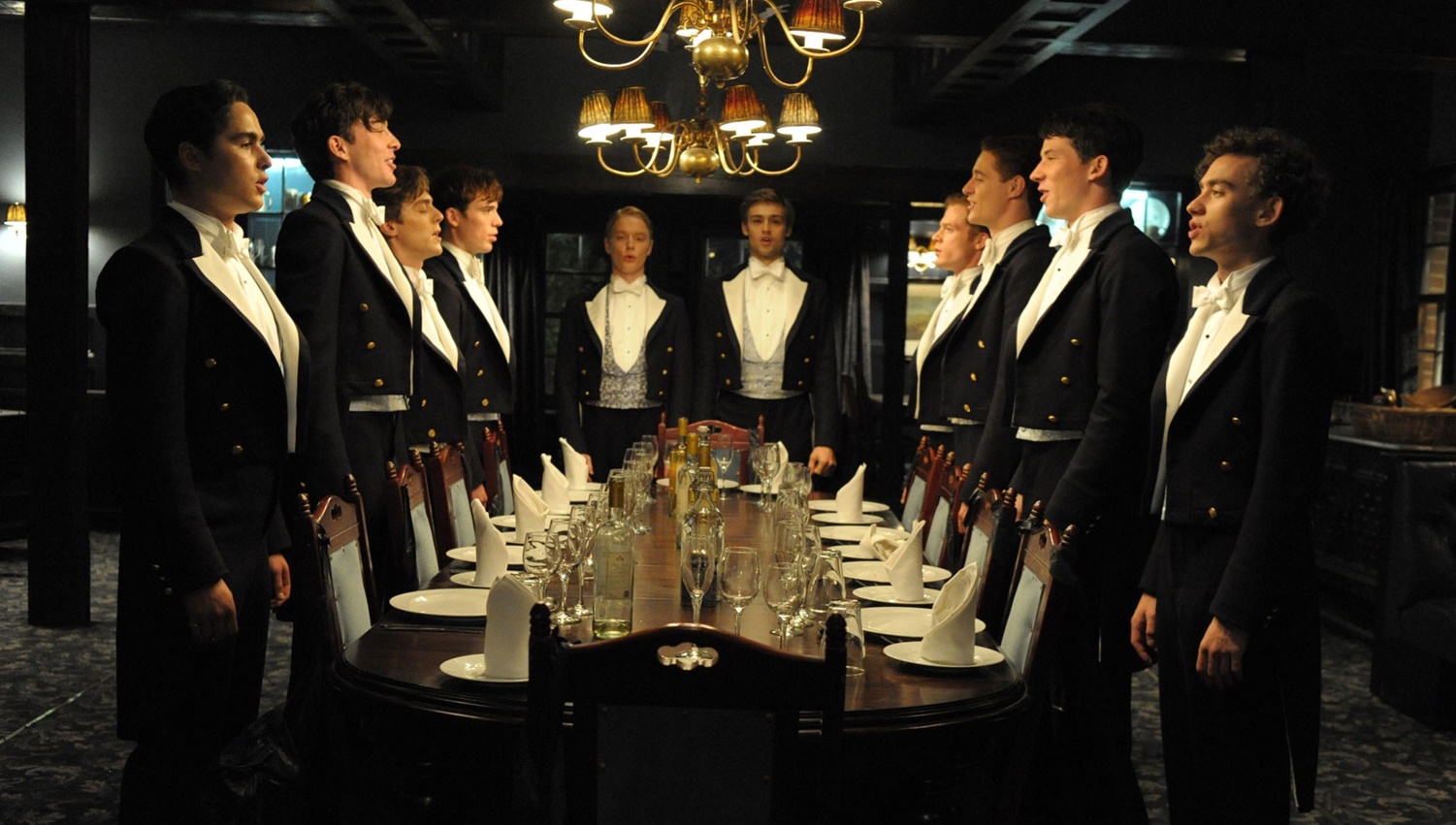
The Riot Club
Dustin Chase
This might just be the timeliest film of 2015, with weekly reports of college fraternity embarrassments or just college students doing deplorable actions. Director Lone Scherfig (An Education) and screenwriter Laura Wade (based on her play) adapt this story about the behavior of the spoiled, rich, 1% as we say in the states. While the film is set on the Oxford campus, it’s as relevant to the recent Oklahoma, North Carolina and Penn state incidents in our news. The structure and allegory set it up like another Emperor’s Club (2002) or even a Sophia Coppola Bling Ring type of thing, but as we watch in horror at the disgusting behavior of these ten privileged young men we understand the women behind this film are making a very loud and bold statement.
The Riot Club was formed on the campus of Oxford over a hundred years ago, the signature name comes from Lord Ryot who was caught in a compromising position with a headmaster’s wife, he was killed and the club celebrated him as a legend. Generations of members carried on his debaucheries behavior and now new members are added each semester to ensure they always have ten members of same likeness. Miles Richards (Irons) fits the pedigree having graduated from Westminster and due to his family name. Alistair Ryle (Claflin) has an uncle from the exclusive club, his hatred for Richards humble behavior makes them competing enemies only to raise the stakes at the upcoming inaugural booze and vomit dinner.
The Riot Club is certainly more effective at denouncing this type of behavior than films like The Wolf of Wall Street or Coppola’s films which glorify the privileged upper class.
“If you have to ask, you can’t join,” one member tells a fellow student looking to apply. Miles is the closest thing to a protagonist the film is willing to give us, his naive behavior, “Being invited to Oxford is like being invited to 100 parties all at once, and I want to attend them all,” makes him a bit less ruthless than the other nine. Like any fraternity film we see fast cars, disgusting initiation tactics and a crude disregard for the opposite sex. However, once The Riot Club gets settled into The Bulls Head gastropub, the film represent what I imagine was the crux of the play and we see the college alcohol abuse at its finest which we understand is a cinematic fire alarm for a down spiral of behavior.
By the time the escort (played by Hunger Games Natalie Dormer) refuses to perform oral sex on the ten as in tradition, the coke dust settles and every member is intoxicated beyond belief, the film turns violent. “I’m sick to death of poor people,” Alistair says in a drunken speech that incites the group to the forthcoming violence. The script uses his character to draw the subdued hatred of lower class out of the other members. When we as the viewer realize the entire film will take place over the dinner escapade, it’s also very obvious that this film is an exploit of a particular class. Wade wants us to be digested by these people, who are very much alive and well in our society (i.e. Conrad and Paris Hilton, The Kardashian’s). The Riot Club is certainly more effective at denouncing this type of behavior than films like The Wolf of Wall Street or Coppola’s films which glorify the privileged upper class.
Final Thought
Effective in its harsh depiction, while preaching to the choir, yet doesn’t really cover any new ground.
